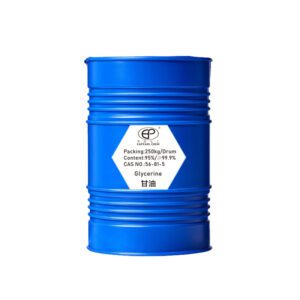Introduction
In the realm of battery technology, three critical factors define the quality of written content: “perplexity,” “burstiness,” and “predictability.” Perplexity gauges the complexity of the text, burstiness compares sentence variations, and predictability measures the likelihood of guessing the following sentence. We need a lot of confusion and burstiness to create compelling content while minimizing predictability. This article embarks on an exciting journey to explore the diverse world of carbonate in battery electrolytes, highlighting their properties, applications, and impact on battery chemistry, all written in English.
Carbonate Compounds in Battery Electrolyte
- Ethylene Carbonate (EC) Ethylene Carbonate (EC) is a prominent and indispensable carbonate compound in battery electrolytes. Its high dielectric constant and ability to create stable solid-electrolyte interfaces make it a popular choice for lithium-ion batteries, effectively enhancing battery performance through efficient lithium-ion transport.
- Propylene Carbonate (PC) Another widely utilized carbonate compound is Propylene Carbonate (PC), known for its low toxicity and excellent solvating ability. Supercapacitors and lithium-ion batteries frequently employ PC due to their capability to dissolve lithium salts and promote efficient ion mobility.
- Dimethyl Carbonate (DMC) As the demand for eco-friendly electrolyte solvents rises, Dimethyl Carbonate (DMC) emerges as a viable alternative. Boasting low toxicity and a favorable environmental profile, DMC finds increasing applications in lithium-ion batteries, fuel cells, and other energy storage devices.
- Diethyl Carbonate (DEC) Diethyl Carbonate (DEC) stands out for its high flash point and favorable physicochemical properties. Its low viscosity and excellent solvating power makes it a suitable candidate for electrolyte formulations in energy storage applications.
- Methyl Ethyl Carbonate (MEC) Methyl Ethyl Carbonate (MEC) offers a balanced solvating ability and low viscosity. This makes it an attractive option in advanced battery technologies, where compatibility with various lithium salts is crucial.
- Dipropyl Carbonate (DPC) Although less common, Dipropyl Carbonate (DPC) shows promise in specific energy storage applications. Its unique chemical structure opens avenues for further research and development.
- Diphenyl Carbonate (DPhC) Characterized by its aromatic ring structure, Diphenyl Carbonate (DPhC) possesses intriguing properties suitable for specific battery systems. Benefits include thermal stability and increased conductivity.
- Dibutyl Carbonate (DBC) Dibutyl Carbonate (DBC) is an ester with promising applications in battery electrolytes. Its ability to form stable complexes with metal ions enhances battery performance and holds potential for further exploration.
- Butene Carbonate (BC) Butene Carbonate (BC), though lesser known, deserves attention for its potential role in battery technology. Further studies may uncover its unique properties and possible applications in energy storage.
The Role of Carbonate in Battery Electrolytes
The electrolyte acts as a vital bridge within battery technology, facilitating ion flow between the cathode and anode during the charging and discharging processes. Carbonate compounds play a pivotal role in improving overall battery performance and safety. They enable efficient ion transport, reduce the risk of dendrite formation, and promote stable solid-electrolyte interfaces.
Carbonate compounds, such as Ethylene Carbonate, exhibit high dielectric constants that dissolve lithium salts and support lithium-ion mobility, which is crucial for lithium-ion batteries’ success. Additionally, the low viscosity of certain carbonate esters, like Diethyl Carbonate, enhances ion diffusion rates, optimizing the efficiency of energy storage devices.
Applications of Carbonate-Based Electrolytes in Batteries
Carbonate-based electrolytes find extensive applications in various battery types, including lithium-ion batteries, supercapacitors, and advanced energy storage systems:
- Lithium-Ion Batteries Lithium-ion batteries heavily rely on carbonate-based electrolytes, particularly Ethylene Carbonate and Propylene Carbonate, the backbone of portable electronics and electric vehicles. These compounds enable lithium-ion transport and create stable solid-electrolyte interfaces, contributing to battery efficiency and performance.
- Supercapacitors Supercapacitors, also known as ultracapacitors, demand fast ion diffusion and high capacitance. Carbonate esters, like Dimethyl Carbonate and Methyl Ethyl Carbonate, offer high solvating power and efficient charge storage capabilities, making them ideal choices for supercapacitor applications.
- Advanced Energy Storage Systems Cutting-edge energy storage technologies, such as solid-state and flow batteries, explore the potential of carbonate compounds. Their chemical versatility allows tailored electrolyte formulations to meet the specific requirements of emerging energy storage devices.
Impact on Battery Performance and Safety
The selection of carbonate compounds in battery electrolytes directly influences battery performance, cycle life, and safety. For example, Ethylene Carbonate’s ability to create a stable solid-electrolyte interface reduces dendrite growth on the anode surface, preventing short circuits and enhancing battery safety.
On the other hand, the low viscosity of Dimethyl Carbonate enables rapid ion diffusion, resulting in better rate capabilities for high-power applications. However, some carbonate compounds may be susceptible to chemical degradation at elevated temperatures, affecting battery lifespan.
Environmental Considerations and Future Prospects
Environmental considerations become increasingly critical in battery technology as the world approaches sustainable energy solutions. Carbonate compounds with low toxicity, such as Dimethyl Carbonate and Diethyl Carbonate, offer potential advantages regarding reduced environmental impact.
The future of carbonate in battery electrolytes lies in continuous research and development to optimize performance, safety, and sustainability. Efforts are ongoing to explore novel carbonate derivatives and develop electrolyte formulations tailored to specific battery chemistries, contributing to a greener and more efficient energy landscape.
FAQs
- Are carbonate-based electrolytes safe for battery applications?
- Carbonate-based electrolytes are generally safe for battery applications when appropriately handled. However, some carbonate compounds may exhibit varying levels of toxicity and flammability, necessitating appropriate safety measures during manufacturing and usage.
- Can Diphenyl Carbonate be used in everyday consumer electronics?
- Due to its specific properties and cost considerations, Diphenyl Carbonate is not commonly used in everyday consumer electronics. It is often reserved for specialized battery systems and applications requiring unique characteristics.
- Do carbonate esters affect battery performance at extreme temperatures?
- Carbonate esters may perform differently under extreme temperatures. While some Compounds like Dimethyl Carbonate perform well over a wide temperature range; others might show reduced efficiency or degradation under extreme conditions.
- What are the advantages of using Methyl Ethyl Carbonate in energy storage devices?
- Methyl Ethyl Carbonate offers a good balance between solvating power and low viscosity, making it suitable for enhancing ion diffusion and charge storage in energy storage devices. Its compatibility with different lithium salts contributes to improved battery performance.
- Are there any alternative electrolytes to carbonate compounds?
- Yes, several alternative electrolytes, such as organic solvents, ionic liquids, and solid electrolytes, are being researched for battery applications. Each type has advantages and challenges, and their suitability depends on the specific battery chemistry and desired performance.
- What is the potential of Dipropyl Carbonate in energy storage technologies?
- Dipropyl Carbonate shows promise in certain energy storage technologies due to its unique chemical structure. However, further research and development are required to fully understand its potential and optimize its performance in specific battery systems.
Conclusion
In conclusion, carbonate compounds play a critical role in battery electrolytes, enabling efficient ion transport, stable interfaces, and enhanced battery performance. From widely used Ethylene Carbonate and Propylene Carbonate to lesser-known compounds like Diphenyl Carbonate and Butene Carbonate, each combination offers unique properties and applications. As we strive for greener and more sustainable energy solutions, continuous research and development in carbonate-based electrolytes will pave the way for advanced battery technologies and a cleaner energy future.








